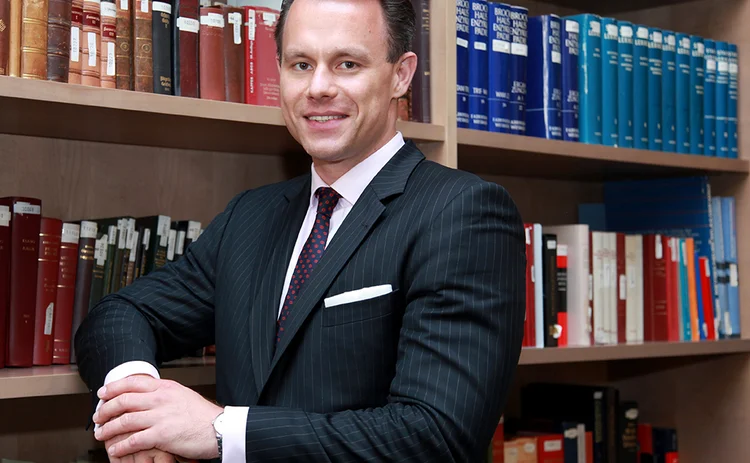The Power of Law: Wiener Börse CEO Christoph Boschan
Christoph Boschan on mixing finance with law, Mifid II's flaws, and how Wiener Borse is avoiding a "massive technology trap."

In 1771, Maria Theresa, the Archduchess of Austria, established Europe’s first financial marketplace in Vienna. Wiener Börse signalled the birth of European capitalism as we know it today; over 2,000 people would meet on the exchange floor daily to trade bonds and foreign currencies.
But after nearly two-and-a-half centuries in existence, the exchange felt that it needed to dust off its cobwebs, and it had the perfect man for the job: Christoph Boschan.
In 2016, the 39-year-old former East
Only users who have a paid subscription or are part of a corporate subscription are able to print or copy content.
To access these options, along with all other subscription benefits, please contact info@waterstechnology.com or view our subscription options here: http://subscriptions.waterstechnology.com/subscribe
You are currently unable to print this content. Please contact info@waterstechnology.com to find out more.
You are currently unable to copy this content. Please contact info@waterstechnology.com to find out more.
Copyright Infopro Digital Limited. All rights reserved.
As outlined in our terms and conditions, https://www.infopro-digital.com/terms-and-conditions/subscriptions/ (point 2.4), printing is limited to a single copy.
If you would like to purchase additional rights please email info@waterstechnology.com
Copyright Infopro Digital Limited. All rights reserved.
You may share this content using our article tools. As outlined in our terms and conditions, https://www.infopro-digital.com/terms-and-conditions/subscriptions/ (clause 2.4), an Authorised User may only make one copy of the materials for their own personal use. You must also comply with the restrictions in clause 2.5.
If you would like to purchase additional rights please email info@waterstechnology.com
More on Emerging Technologies
Agentic AI and big questions for the technologists
Waters Wrap: Much the same way that GenAI dominated tech discussions over the last two years, the road ahead will feature a lot of agentic AI talk—and CIOs and CTOs better be prepared.
Waters Wavelength Ep. 302: Connectifi’s Nick Kolba
Nick joins the show to give his views on trends in the interoperability space and the FDC3 standard.
AI co-pilot offers real-time portfolio rebalancing
WealthRyse’s platform melds graph theory, neural networks and quantum tech to help asset managers construct and rebalance portfolios more efficiently and at scale.
Waters Wavelength Ep. 301: SIX’s Javier Hernani
Javier Hernani, head of securities services at SIX, joins to discuss everything T+1.
Bloomberg debuts GenAI news summaries
The AI-generated summaries will allow financial professionals to consume more data, faster, officials say.
8 bank CTOs and CDOs sound off on artificial intelligence
Waters Wrap: Last year, WatersTechnology spoke with heads of technology and data from a range of tier-1 banks. Anthony pulls at one common thread from those interviews: AI.
Waters Wavelength Ep. 300: Reflecting on humble beginnings
It is our 300th episode! Tony and Shen reflect on how it all started.
An inside look: How AI powered innovation in the capital markets in 2024
From generative AI and machine learning to more classical forms of AI, banks, asset managers, exchanges, and vendors looked to large language models, co-pilots, and other tools to drive analytics.






